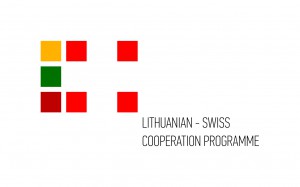Lithuanian version
 Laboratory of Microwave Spectroscopy has received funding from Lithuanian-Swiss cooperation programme to reduce economic and social disparities within the enlarged European Union under project agreement No CH-3-ŠMM-01/02.
Laboratory of Microwave Spectroscopy has received funding from Lithuanian-Swiss cooperation programme to reduce economic and social disparities within the enlarged European Union under project agreement No CH-3-ŠMM-01/02.
Name of the project:
Swiss-Lithuanian Ferroelectrics: From controlled internal fields to energy harvesting / medical diagnostics / microelectronic applications.
Project acronym: SLIFE.
Project started on 1st Dec 2012, ends on 31st March 2016. Total budget: 2,488,955 LTL
This project is executed by three parties: Vilnius University (J. Banys), Kaunas University of Technology (R. Kažys) and Ecole Polytechnique Fédérale de Lausanne (N. Setter).
Web pages of our partners:
http://lc.epfl.ch/cms/lang/en/pid/103841
http://ktu.edu/umi/en/content/slife-0
Summary of the project:
Ferroelectrics are ubiquitous materials in modern technology with substantial interest in further extending their functionality in components of medical-diagnostic equipment (using the piezoelectric effect), microelectronics and communications (ferroelectric switching and dielectric properties), and energy harvesting (piezo-, pyroelectric, and photovoltaic effects).
Ferroelectricity is the property of some polar materials to undergo polarization reorientation when subjected to external electric field. Real ferroelectric materials have internal electric fields due to finite size, charged defects, and inhomogeneities in the material. This is even more pronounced in thin films. These inevitable fields are often considered a hurdle, typically causing degradation of properties.
Several recent studies showed strongly enhanced properties (piezoelectric, dielectric, photovoltaic) originating from internal fields, hinting that internal fields could be beneficial if properly addressed. This triggers us to propose the present project, in which, leveraging on our complementary competences, we aim to better understand internal fields in ferroelectrics and use them to obtain enhanced functionality.
The following program is planned: Ferroelectric films will be prepared in Lausanne and Vilnius and crystals will be purchased. Internal fields will be introduced into the films by dopants, substrate and electrode choice, and growth protocols. Special poling procedures will be applied on both single crystals and thin films and studied (Lausanne, Vilnius, Kaunas). Characterization will be done in Lausanne (local characterization by advanced scanning force techniques and detailed electrical / photoelectrical measurements coupled with theory and modelling), Vilnius (dielectric spectroscopy / pyro- and piezoelectric characterization), and Kaunas (piezoelectric, in particular ultrasonic characterization). Demonstrators will be prepared in Lausanne (photovoltaics), Vilnius (tunable dielectrics) and Kaunas (piezoelectrics) using the new materials developed during the project and based on the new insights developed in-concert by the three partners.
